How confident are you that certain hiring biases are not present when screening candidates? Are you sure you can pick resumes and applications based on merit rather than specific subjective criteria? It’s a hard pill to swallow, but the statistics still show that unconscious bias creates barriers to fair and objective hiring.
As we move into a younger generation entering the workforce, diversity practices are essential in candidates choosing a company. In addition, Generation Z workers have been reported to be the most diverse employees in recent years in sexuality, race, and background. For companies that want to remain innovative and open to creating an inclusive hiring practice, it’s essential to examine how conscious and unconscious personal preferences could be a barrier to that.
What is unconscious bias?
We all have biases. Humans are naturally programmed to associate themselves with places, people, and ideas that affirm our beliefs. We also like the feeling of familiarity that comes with being around others who are like us. There is nothing wrong with having a common ground of culture in a workplace. This familiarity becomes problematic when hiring decisions are solely based on unconscious biases.
So controlling these biases should be easier said than done. We’ve made strides in our culture, and it’s illegal not to hire someone because of discrimination. However, the data still shows considerable intolerance toward hiring minorities.
Removing unconscious biases is more tricky than just saying you are free of these biases. Think of unconscious biases as riding an elephant versus riding a horse. The horse is more trained and easier to control. The elephant, on the other hand, is a lot more challenging to manage. The elephant is more likely to move you than you control it. Since unconscious bias is so pervasive and difficult to eliminate, it can give candidates with a particular gender, sexuality, white-sounding names, and age an unfair advantage.
The first step to defeating the types of biases in hiring is being aware of what they can manifest as.
Types of Hiring Biases
Confirmation Biases
Have you ever interviewed someone and, in the first moments, felt like you had an idea of their work performance? These stories we tell ourselves about candidates are called confirmation biases. It’s our initial belief about specific people, and we try to confirm those beliefs with the questions we ask in interviews.
Picture it: you’re interviewing a candidate you seem to like with your team. You’re noticing that they’re struggling with situational questions, so you throw them a bone by giving them a question that plays to their strengths. You’re committing a confirmation bias because you are trying to mend this person’s story to your initial impressions. This candidate, however, could end up going against your initial assessment. Their performance could be poor because you chose your confirmation bias over their merit.
A meaningful way to eliminate confirmation bias is to structure your interviews. A standard set of questions in each interview gives you a more black-and-white look at how the candidate performs. Do not sway to the candidate’s strengths or weaknesses; look at what your company needs.
Affect heuristic
You’re heading to an interview, and your car gets stuck in the snow. You arrive messy and grumpy. Once in the discussion, you feel like you have a grey cast over whatever the person is saying, no matter what they say. This, my friend, is called the affect heuristic. Or how external situations affect our moods to make decisions.
Your emotions can make rash decisions without logic. How is it someone’s fault if something terrible happened to you in your personal life? But still, no matter how much we like to pretend we can separate our emotions from our decisions, they find a way to creep in.
Time is your friend when it comes to ensuring emotions aren’t influencing decision-making. Giving yourself a day or two to return to your notes allows you to process your personal life. Also, making sure you have other non-partial interviewers present allows the affect heuristic not to influence you so much.
Halo and Horn Effect
The angel and the devil are two archetypes we quickly label people as. The halo effect is blinded by a candidate’s positive traits that distract us from essential factors. You may see that an interviewee has gone to your alma mater, and you associate them with being more intelligent and capable than a candidate who hasn’t. This halo effect can make you overlook that they were fired from two previous jobs. Achievements in a candidate’s resume are essential, but make sure not to lose the forest for the trees. Leave seeing the halo to Beyonce, and try to view them through a more grounded lens.
On the other hand, the horn effect can also make you lose sight of the candidate’s full potential. If the candidate has something on their resume you disagree with, like leaving a job to pursue a personal matter, you may give them demon horns they don’t deserve. The world is changing, and many employers hire based on skills, experience, and character rather than just a shiny and padded resume. Balancing the halo and the horns you place on a candidate is essential in eliminating biases.
Beauty bias
Humans are naturally appearance-based creatures. It would help if we could all go into an interview with blindfolds, but that seldom happens. How candidates dress and groom themselves for an interview can show how committed they are to presenting professionally to the job. Yet, beauty can be blinding, and unless you are a model studio, it is against your best judgment to hire someone based solely on appearance and charm.
Having an initial phone interview and a wide array of interviewers present can help get rid of this type of bias. Structured interviews also help ensure each candidate answers the same questions and provide fewer rose-colored glasses.
Groupthink bias
Groupthink bias, or conformity bias, is picking a candidate simply because the rest of the group wants to go with them. You may know in your heart of hearts that a candidate has proven worthy to be hired, only to find out your coworkers want to go for a more unqualified candidate. It can be easy to agree with them not to cause friction, but groupthink often leads people to make more rash decisions.
Sometimes speaking up and going against the grain is vital that your organization doesn’t get sidetracked by an unfit candidate.
Gender, race, and sexuality bias
The biases associated with physical attributes of a candidate like their sexuality, race, age, or gender are a controversial discussion. But it needs to be had.
Many companies want to hire more diverse candidates but feel like they cannot attract that. For example, hiring engineers who are not white, straight, or male can be challenging since more diverse candidates often find it difficult to break into the engineering field. So what’s left in the candidate pool is mainly white, straight, and male.
In a 2021 study, Black-sounding and Asian-sounding names are often overlooked more than white-sounding names. An influx of diversity training still isn’t enough to curb the bias we often feel toward names deemed more western. During the study, people with white-sounding names received 50% more callbacks than those with non-western names. Often people of color will even “Whiten” their names on their resumes to receive more callbacks.
While being LGBTQ+ can seem like a hidden minority status versus race or gender, many LGBTQ+ people face hiring challenges not seen often with straight people. 75% of LGBTQ+ employees in the States reported experiencing negative day-to-day workplace interactions related to their LGBTQ identity in the past year. Many remain closeted during the hiring process or will avoid companies that they feel won’t accept their sexual orientation and identities.
Implementing strong diversity practices in your hiring process and being transparent about them is crucial to building confidence in diverse applicants. While it’s never an easy conversation, continuing to discuss how our unconscious biases affect minorities is a critical way to invite them into your company.
The Cost of Biases
Unconscious bias does not only hurt candidates who may feel discriminated against, but it also has a hefty price tag as well. It is estimated that 64 billion dollars are lost annually due to unconscious bias impacting hiring decisions.
Plus, this cost doesn’t consider the millions of dollars companies lose when defending themselves due to employers’ biases leading to unlawful behavior. Employment lawsuits are costly and time-consuming. They can average around $200,000. We are entering a time when employees are fighting back for power. Every year the EEOC secures approximately $404 million from U.S. employers. Is your unconscious bias worth it?
You are also losing out on diversity when you do not keep your types of hiring biases in check. Companies with more robust diversity and inclusion practices often see more significant rewards in revenue than companies that don’t. A wide array of worldviews, perspectives, and backgrounds also gives your company more resilience. Buildings that are rigid and made with one type of material risk falling apart at the first sign of stress. Buildings that utilize different materials and structures are often the ones that stand tall.
Tools help to get rid of biases.
Technology such as AI, automation, and cloud data is a surefire way to help with unconscious human bias. Slowly the recruitment and HR industry are adding more technology to weed out biases in hiring. However, these can be pricy and slow to implement.
Matchfield uses AI tech to help provide you with candidates free from bias. We don’t look at a candidate’s name, age, gender, or background when we screen them for you. Instead, we focus on how much they will provide and fit your company.
Give us a call if you’re ready to hire, free of biases that can hold you back. We can demo Matchfield with you to see how bias-free our database can be.

